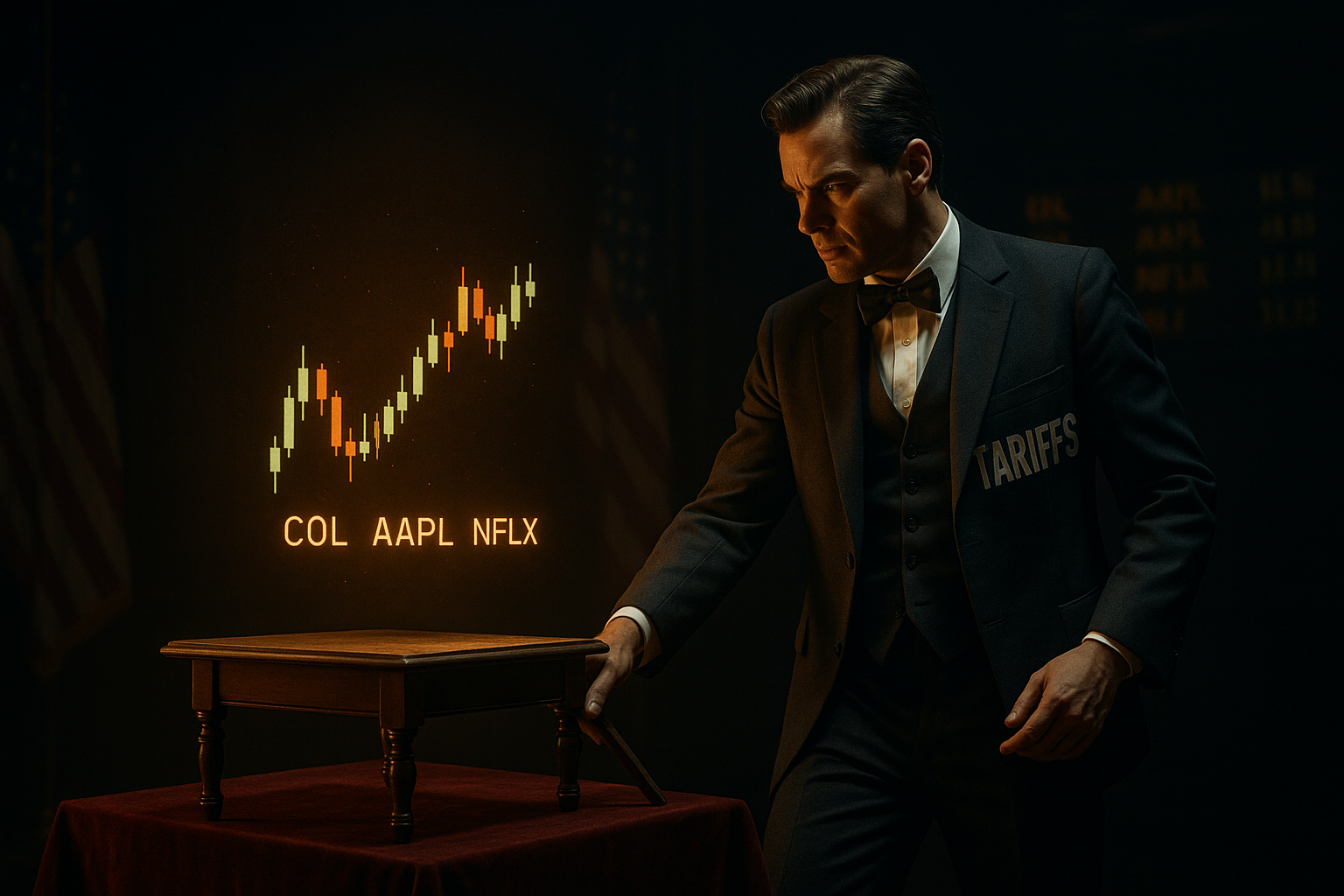When the leader of the free world tells you "everything's OK" while discussing a potential recession, it's a bit like hearing your dentist say "this won't hurt much" right before the drill comes out. You know trouble's brewing.
President Trump's recent "Meet the Press" appearance featured exactly that kind of breezy confidence about our economic future that—let's be honest—tends to make Wall Street types reach for their anxiety medication.
"We're in a transition period," Trump explained, which is technically accurate. Then again, so is calling a freefall a "gravity exploration experience."
That first-quarter GDP contraction of 0.3% reported by Commerce isn't a five-alarm economic fire on its own. But pair it with the policy whiplash we've been experiencing? That's where things get dicey.
The Tariff Rollercoaster Nobody Asked to Ride
What we're seeing unfold is something I've watched happen in economies around the world—call it the "policy pendulum cycle." New administration sweeps in, radical trade philosophy follows, markets freak out. Happens every time.
Look, the pattern is predictable: shocking announcement, period of "what the hell is actually happening?" confusion, painful adjustment, eventual finding of equilibrium, and finally settling into whatever the new normal is.
We're currently stuck between those first two phases. Trump announces sweeping tariffs! Then sort of backs off! Then doubles down on China with a crushing 145% duty! Markets initially breathe a sigh of relief at the partial reprieve, but the underlying direction still has CFOs popping Tums like candy.
I spoke with three manufacturing execs last week who all said variations of the same thing: "We can handle bad news. It's uncertainty that paralyzes us."
Trump's cabinet meeting comments about kids having "two dolls instead of 30 dolls" that might "cost a couple of bucks more" reveals a... let's say unique... understanding of consumer economics. (Having covered trade policy for over a decade, I can confidently say global supply chains are slightly more complicated than toy shopping.)
The Economic Blame Game Championship
There's also the fascinating spectacle of what I call "attribution gymnastics" happening. First-quarter numbers in the red? "That's Biden's economy." Any good news that materializes six weeks from now? You can bet that'll be credited to current policies.
This selective scorekeeping isn't exactly a Trump invention—practically every administration does some version of it—but it does make serious economic analysis a headache and a half.
The cognitive dissonance is something to behold. How can you simultaneously inherit "the worst economy in history" while also presiding over "the greatest economy in the history of our country" just months later? Hmmm.
Wall Street's Split Personality Disorder
"I had dinner with the biggest people on Wall Street," Trump mentioned, citing unnamed financial authorities who supposedly see "the greatest windfall ever" coming. Which Wall Street people? Doesn't matter!
What's funny (in a concerning way) is that for any economic scenario you can imagine, there's a Harvard economist predicting boom times and another predicting doom. Small differences in assumptions lead to wildly different outcomes—that's just how forecasting works.
But here's the thing—markets are watching policy signals rather than fundamentals right now. That initial tariff announcement sent stocks tumbling, followed by a recovery after the partial pause. Investors aren't stupid; they're reading the tea leaves.
Short-Term Pain, Long-Term... What Exactly?
There's actually a legitimate economic concept here—restructuring often hurts before it helps. The protectionist crowd argues that manufacturing reshoring and supply chain resilience will eventually outweigh the adjustment costs.
The free trade crowd? They're convinced higher input costs, retaliatory tariffs, and reduced efficiency will permanently damage American competitiveness.
What's missing from Trump's rosy "everything's OK" assessment is any acknowledgment that even if things work out fine in the aggregate, specific industries and regions are gonna feel very different effects. A steel producer in Pennsylvania will experience this "transition" quite differently than a toy retailer in California or a soybean farmer in Iowa.
In the finance world—much like in skydiving—how you land matters just as much as the fact that you eventually reach the ground. This economic transition might stick its landing gracefully... or we might be heading for a rough touchdown.
But hey, everything will be OK.
Eventually.
Probably?




